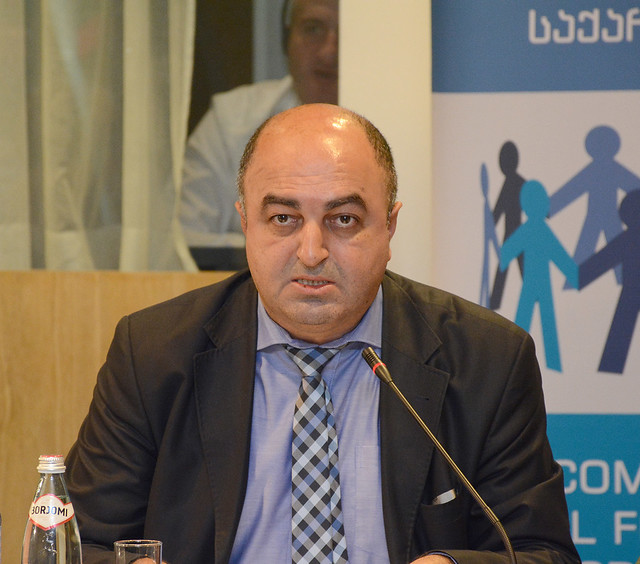Public Discussion on Human Rights in Conflict-Affected Regions: Existing Challenges and State Strategy
Public discussion on Human Rights in Conflict-Affected Regions: Existing Challenges and State Strategy was held on the initiative of the Public Defender of Georgia on November 16, 2017. At the meeting, the Public Defender presented a special report on the Impact of the Abolition of Checkpoints on the Rights Situation of the Population Living along the Dividing Line of Abkhazia.
The Public Defender spoke about the rights situation in the occupied territories. He termed the abolition of two checkpoints at the beginning of 2017 and increased sanctions for the so-called "illegal border crossing" as steps backwards in terms of freedom of movement. He also talked about the problems related to documentation in the Gali district.
Shamgona-Tagiloni checkpoint was abolished in April 2016 and Khurcha-Nabakevi and Orsantia-Otobaia checkpoints were abolished on 4 March 2017. Along with the abolition of the checkpoints, the de facto authorities of Abkhazia increased sanctions for those detained for the so-called "illegal crossing border". Fines were tripled and administrative imprisonment was added to sanctions in case of repeated violation. Since 2017 there have been several cases of long-term imprisonment for "illegal border crossing".
The abolition of the Khurcha-Nabakevi and Orsantia-Otobaia checkpoints had a particularly negative effect on nearly 3 400 families living in 11 villages in the so-called lower zone of the Gali district, who had been most frequently using the checkpoints. Time and money needed for traveling to the Georgia-controlled territory increased. School students and kindergarten children can no longer cross the dividing line to get education.
According to the Public Defender, one of the examples of the restrictions on freedom of expression was the persecution of Tamar Mearkishvili, a civil activist of the city of Akhalgori. At the same time, pressure is exerted on the persons or organizations involved in the projects aimed at building confidence and peace.
When speaking about the social rights, the Public Defender emphasized the lack of various services in the occupied territories, including for victims of domestic violence, persons with disabilities, children, etc. The economic situation of Abkhazia was assessed as problematic, especially in the Gali district, which has been further worsened as a result of the spread of Asian bugs. The Public Defender considers that the Government of Georgia should develop a plan to respond to the economic problems of the residents of the Gali district. However, unfortunately, most of the Public Defender's recommendations aimed at improving the situation of the conflict-affected population have not yet been fulfilled.
Speeches were delivered at the event by Ketevan Tsikhelashvili, State Minister for Reconciliation and Civic Equality, Davit Dondua, Deputy Minister of Foreign Affairs, Zurab Bendianashvili, Head of Civic Forum, Eliko Bendeliani, a representative of Peace and Development Center and Olesia Vartaniani, a representative of International Crisis Group. The discussion was moderated by Nino Kalandarishvili, Director of the Institute for the Study of Nationalism and Conflicts.
The discussion was held within the framework of the EU project Fight against All Forms of Discrimination in Georgia.
Special Report of the Public Defender of Georgia “On the Impacts of the Closure of Crossing Points on the Rights of the Population Living Along Abkhazia’s Administrative Boundary Line”
















